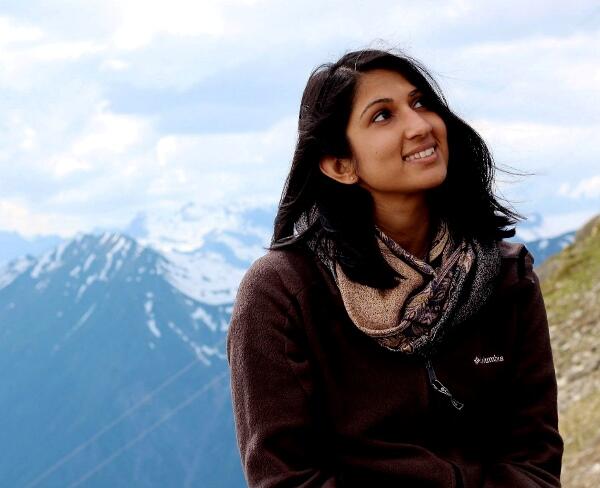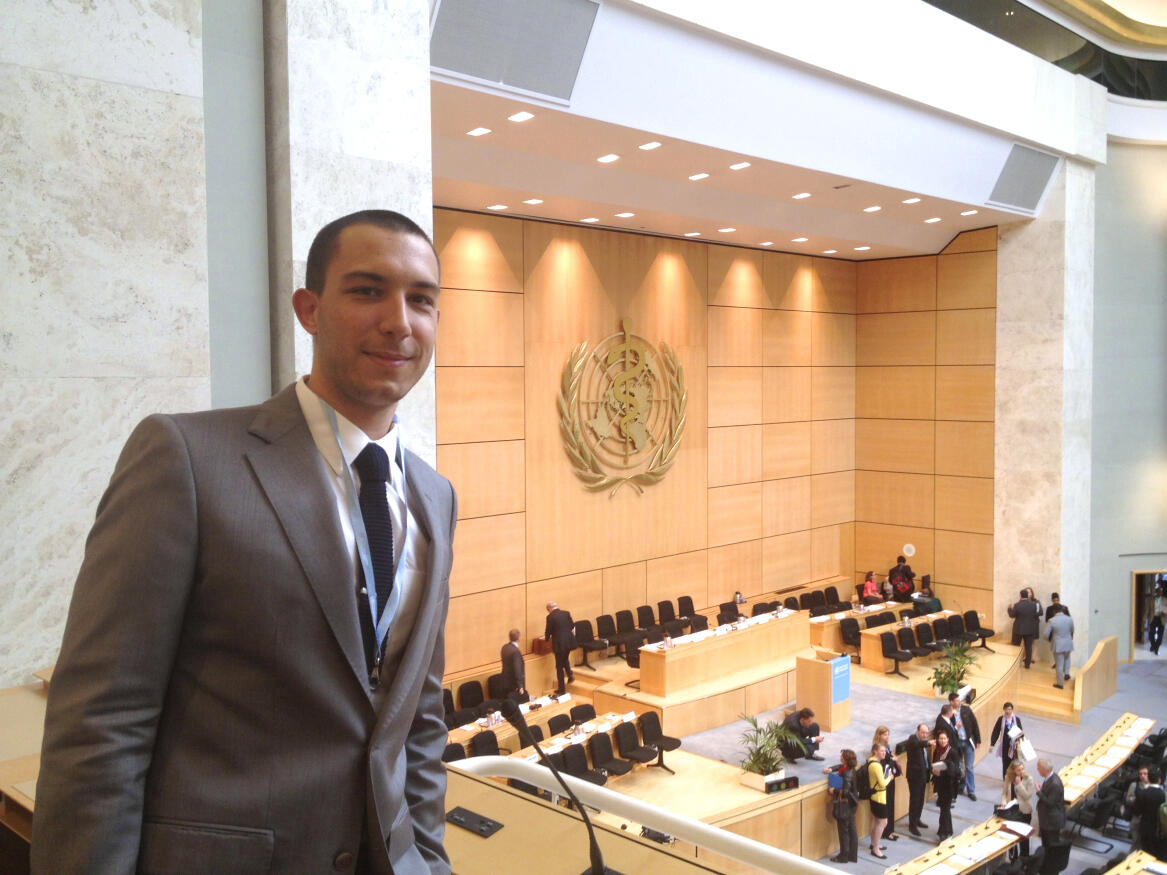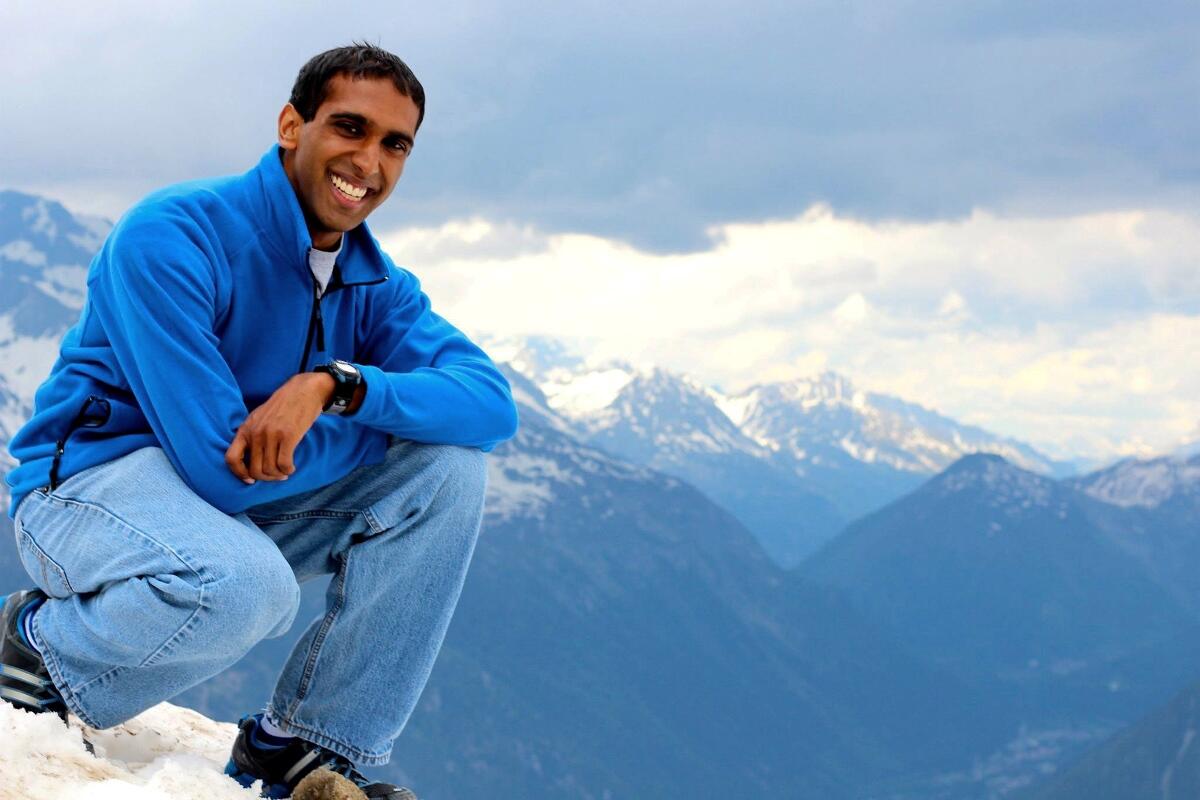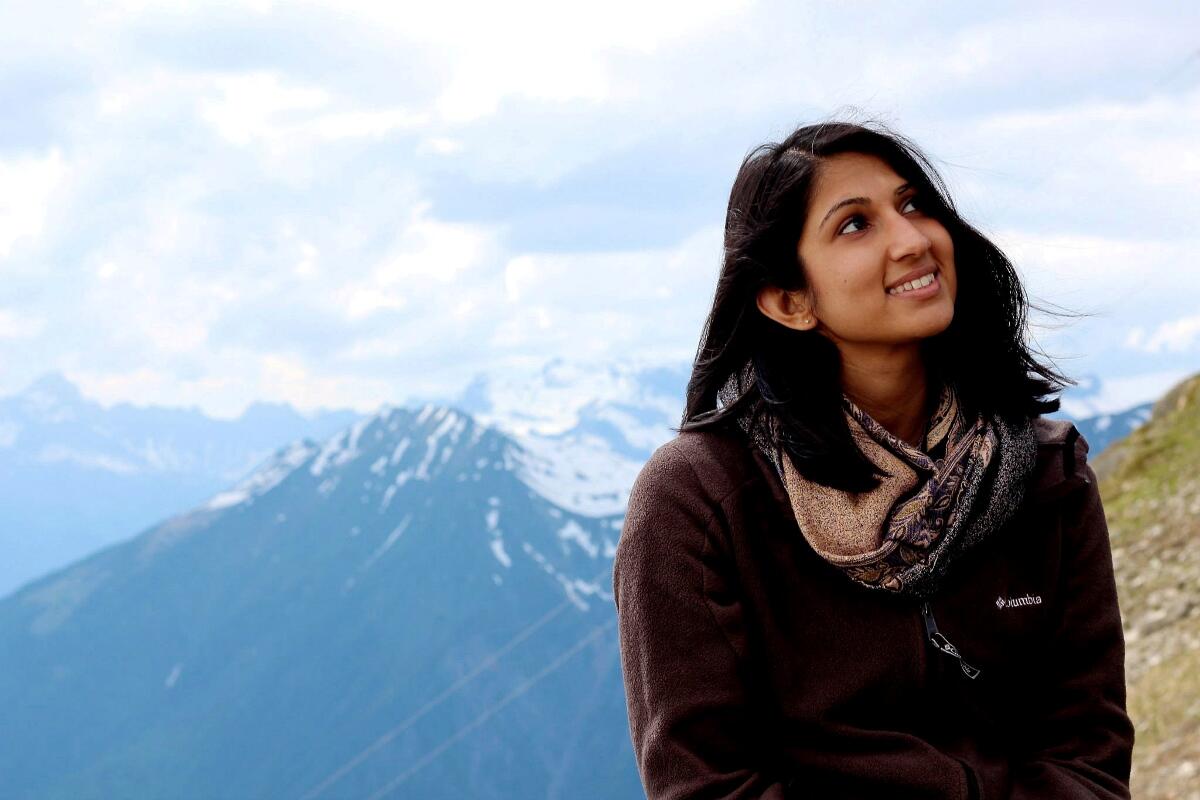
Sept. 11, 2013
Student trio interns with WHO
Share this story
Mona, Braveen and Adrian are superb examples of how passionate and committed our students are.
This summer, three students in the Virginia Commonwealth University School of Medicine participated in the World Health Organization internship program in Geneva, Switzerland.
Adrian Diaz, who is part of the class of 2016, worked with the WHO’s Tobacco Free Initiative;Braveen Ragunanthan, class of 2016, worked with the WHO’s Department of Mental Health & Substance Abuse; and Malkit “Mona” Singh, class of 2014, worked with the WHO’s Emergency and Essential Surgical Care Program.
The three are enrolled in the medical school’s International/Inner City/Rural Preceptorship program that recruits and prepares students who have an interest in and a commitment to practicing medicine in medically underserved areas. The students found the I2CRP program had prepared them well for their summertime experiences.
“I2CRP provides students an important glimpse into a side of medicine traditionally not taught in the medical curriculum,” Diaz said. “Many of the topics we covered throughout the year – health care disparities, access to health care, universal coverage – were topics that were discussed at the World Health Assembly and even daily during informal lunch conversations with experts at the WHO.”
The students’ WHO internships coincided with the 66th World Health Assembly, during which member states convene to establish global health needs and priorities. Diaz and Ragunanthan’s WHO internships were both part of the Duke Global Health Fellows Program. Singh traveled as a Women’s Leadership Board Fellow of the Harvard Women and Public Policy Program.
“The I2CRP program faculty are extremely proud of the accomplishments of all of our I2CRP students,” said Steve Crossman, M.D., director of medical student education in the Department of Family Medicine and Population Health. “Mona, Braveen and Adrian are superb examples of how passionate and committed our students are. They inspire and challenge all of us in our ongoing efforts to serve others.”
In Singh’s view, the I2CRP program tends to attract student-leaders who are not just passionate about doing good but truly driven to do what they can to eradicate injustice. In the program these idealists find a safe haven from cynicism.
“I2CRP provides a community of like-minded peers and mentors where we can express and reinforce our motivations, our power to make a difference and our deep disdain for complacency and the status quo,” she said.
The program exposes students to the hard realities and difficulties – as well as the rich rewards and potential for positive impact – that comes with practicing in underserved inner-city and rural communities, whether in Virginia or abroad. Singh’s views have been shaped through her third-year I2CRP clerkships in rural community surgery and Richmond community health centers and free clinics as well as VCU’s HOMBRE medical mission to the Dominican Republic.
Throughout his WHO internship, Ragunanthan often thought back to clinical encounters he’d had with his I2CRP preceptor at a Richmond free clinic, CrossOver Healthcare Ministry. As he listened in on WHO discussions about global guidelines for alcohol abuse, violence against women or incorporating mental health into primary care, he realized, “These are the narratives of people around the world in some of the poorest settings, but it hits me that they are the stories of patients I have seen in America as well.”
Mark Ryan, M.D., medical director of I2CRP, noted that students who join the program “are committing to extra work and additional obligations above the usual requirements of medical school in order to gain a broader understanding of health care inequities and medically marginalized communities. Mona, Adrian and Braveen, and many other I2CRP students working in the U.S. and overseas put this knowledge into action to better the health of communities and individuals.”
Adrian Diaz

“I chose to intern at the tobacco free initiative for a few reasons,” Diaz said. “While infectious disease – HIV, TB, Malaria, etc. – is a hot topic, the big health issue of this century will be non-communicable disease (NCD), and tobacco is the common risk factor for the four big NCDs: cardiovascular, cancer, diabetes and chronic respiratory conditions.”
Adrian describes the summer as a rejuvenating experience. In the months before entering medical school, he traveled to Southeast Asia and Central America on humanitarian medical relief mission trips where he was confronted with lines of patients, from sunrise to sunset.
“I was not disillusioned by what seemed like an endless amount of work, but rather by how a system had let down such a large number of people,” he wrote in a first-person essay published on KevinMD.com.
During his first year of medical school, he was surprised to witness some of the same barriers. He wondered if the fight against health care disparities would ever be won.
But at his summer internship, he was privy to conversations and debates with leaders in global health. It had the result of convincing him that progress is being made for universal health care access, reducing health care disparities and eradicating many diseases through immunizations.
“Diseases can spread faster than ever, while at the same time life-saving therapies can be delivered to areas we never before dreamed of,” Diaz said. “We are now practicing medicine in a globalized world.”
He hopes his career will encompass practicing medicine on both the domestic and global fronts, as well as research and public/global health.
“This fall I will be going back to my medical training eager to work towards these goals and rejuvenated knowing that one day the lines will start to get shorter, and patients will not only live longer lives, but healthier ones.”
Braveen Ragunanthan

As part of his undergraduate studies at Duke, Ragunanthan participated in the Robertson Scholars Leadership Program. Through the program, he spent summers observing rural American poverty in the heart of the Mississippi Delta, the epicenter of the HIV/AIDS crisis in South Africa, neglected tropical diseases in Ethiopia and AIDS policy work at the U.S. State Department.
These experiences formed the foundation of his understanding of global health, which he interprets – not in terms of geography – but as fighting health disparities and advocating for health equity. Over the course of his undergrad years, he said, “Global health went from an interest to my passion. It became my purpose, my mission and quest, it became why I get up in the morning, it became everything that I believe in.”
His WHO internship with the Department of Mental Health and Substance Abuse was a deliberate choice to engage with a policy issue outside the realm of his previous experience.
“My daily interactions with people, ranging from folks with decades of experience to freshly-arrived interns from diverse backgrounds, were exhilarating,” Ragunanthan said.
Ragunanthan’s days were filled with learning about the latest developments in global health, observing real-time policy decisions and meeting key leaders from around the world.
His work focused on next steps in the global agenda for developmental monitoring and evaluation in early childhood development. “Think baby milestones and such – when children crawl, talk, reflexes, etc.” Calling on experts from organizations such as UNICEF, World Bank and UNESCO, Ragunanthan worked to get a handle on what tools and instruments are used internationally and in individual countries to assess childhood development at the population level.
During his internship, Ragunanthan saw the passage of the landmark Comprehensive Mental Health Action Plan 2013-2020, representing a significant commitment by more than 190 countries, some of which had denied mental illness even existed in their respective countries 20 years ago.
Ragunanthan plans a career as a primary care physician in a medically underserved community in the U.S. He envisions caring for his patients will take him outside his practice’s walls and into the neighborhood as an active community member involved with local schools, small businesses, grocery stories and faith-based institutions.
“Disparities in health both within our nation’s borders and outside must be fought wherever they exist,” he said.
Malkit “Mona” Singh

“I think we all have the power to do what we can, with what we have, to give others a chance,” Singh said. “I learned that from my parents.”
Her parents emigrated from rural India in the late 1970s. With only modest schooling, they learned to speak English working as a cashier at 7-Eleven and McDonald’s and as a janitor and taxi driver in Washington, D.C.
“My mom and dad each worked multiple jobs to support – not just our family – but also poor relatives and friends,” Singh said. “They taught me to value sewa (selfless service) and sarbat da bhalla (working for the common good) and to never forget my own privilege and power to serve.”
She had suspected that the WHO was not the place to exert that power.
“To me, local and global are one in the same,” Singh said. “There are serious inequities and injustices right here – all around us — and abroad. I had this picture of the WHO as this big bloated beast with good intentions but difficulty accomplishing the real work on the ground.”
A phone call with Meena Cherian, M.D., director of the WHO’s Emergency and Essential Surgical Care Program, changed Singh’s mind.
“Here was a WHO physician-leader who acknowledged there were barriers but was not going to let those frustrations stop the work of bringing parties together and mobilizing action for the poor.”
Singh was inspired.
The WHO Emergency and Essential Surgical Care Program provides tools and works with health ministries and partners to improve access to lifesaving, disability-preventing surgical care in low- and middle-income countries. During her internship, Singh worked on the program’s efforts to improve policy, planning and training as well as monitoring and evaluation for the delivery of emergency surgical, obstetric, trauma and anesthesia services in resource-poor settings.
The experience shaped her views on strengthening health care delivery for vulnerable women and victims of domestic violence in underserved settings. She shared her perspective in an essay published on KevinMD.com.
Singh is pursuing a dual degree, M.D.-M.P.A. She has just completed her two-year master’s in public administration at the Harvard Kennedy School as a Public Service Fellow in time to return to the MCV Campus for her fourth year and to begin the application process for general surgery residency.
Subscribe for free to the weekly VCU News email newsletter at http://newsletter.news.vcu.
Subscribe to VCU News
Subscribe to VCU News at newsletter.vcu.edu and receive a selection of stories, videos, photos, news clips and event listings in your inbox.












